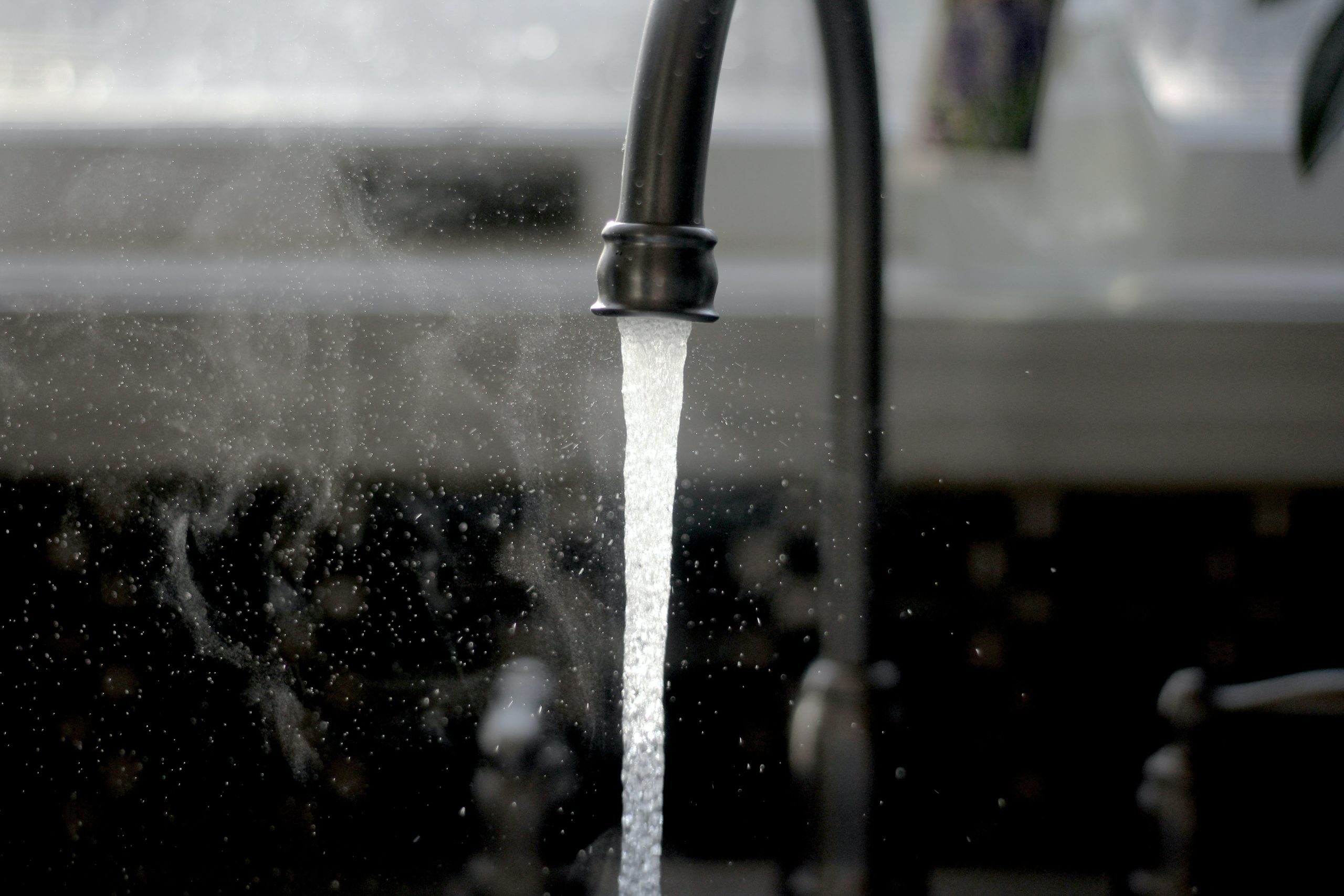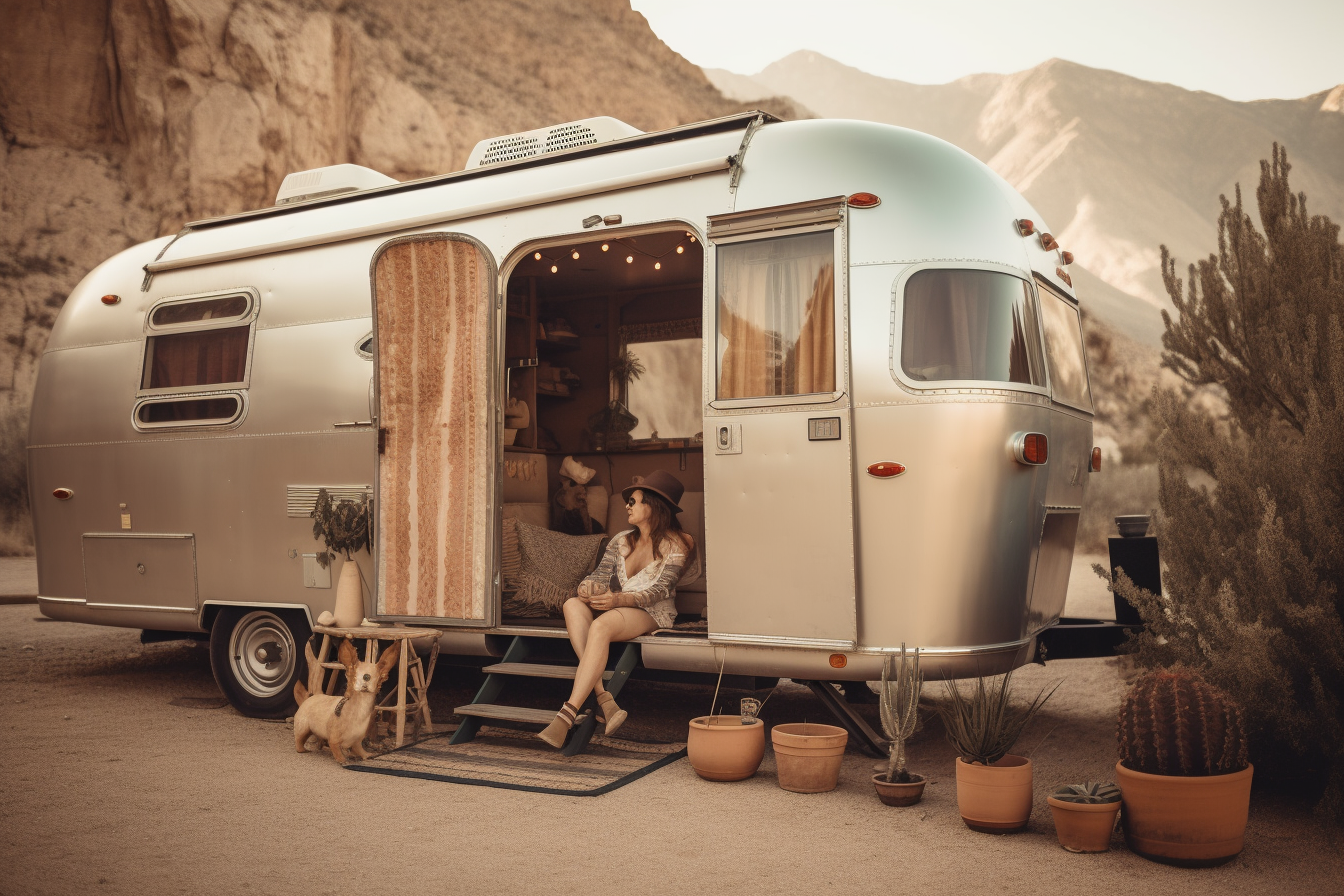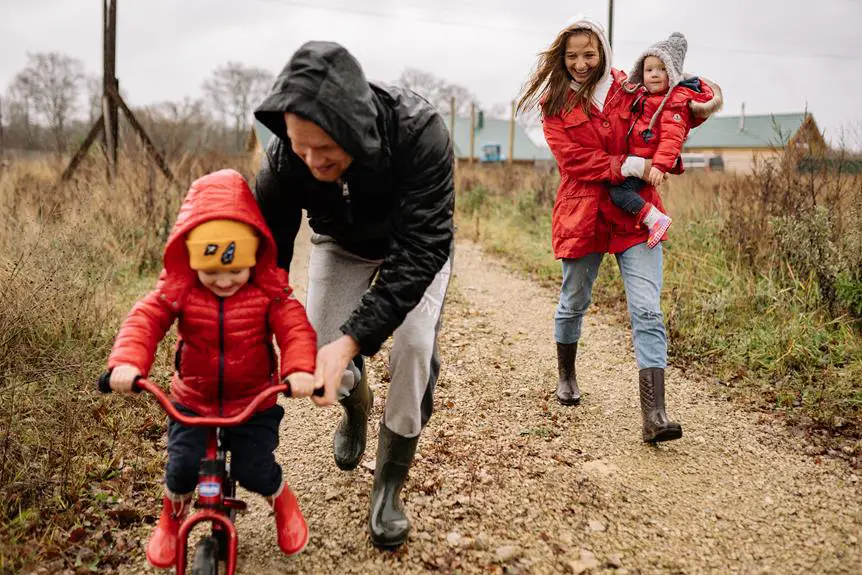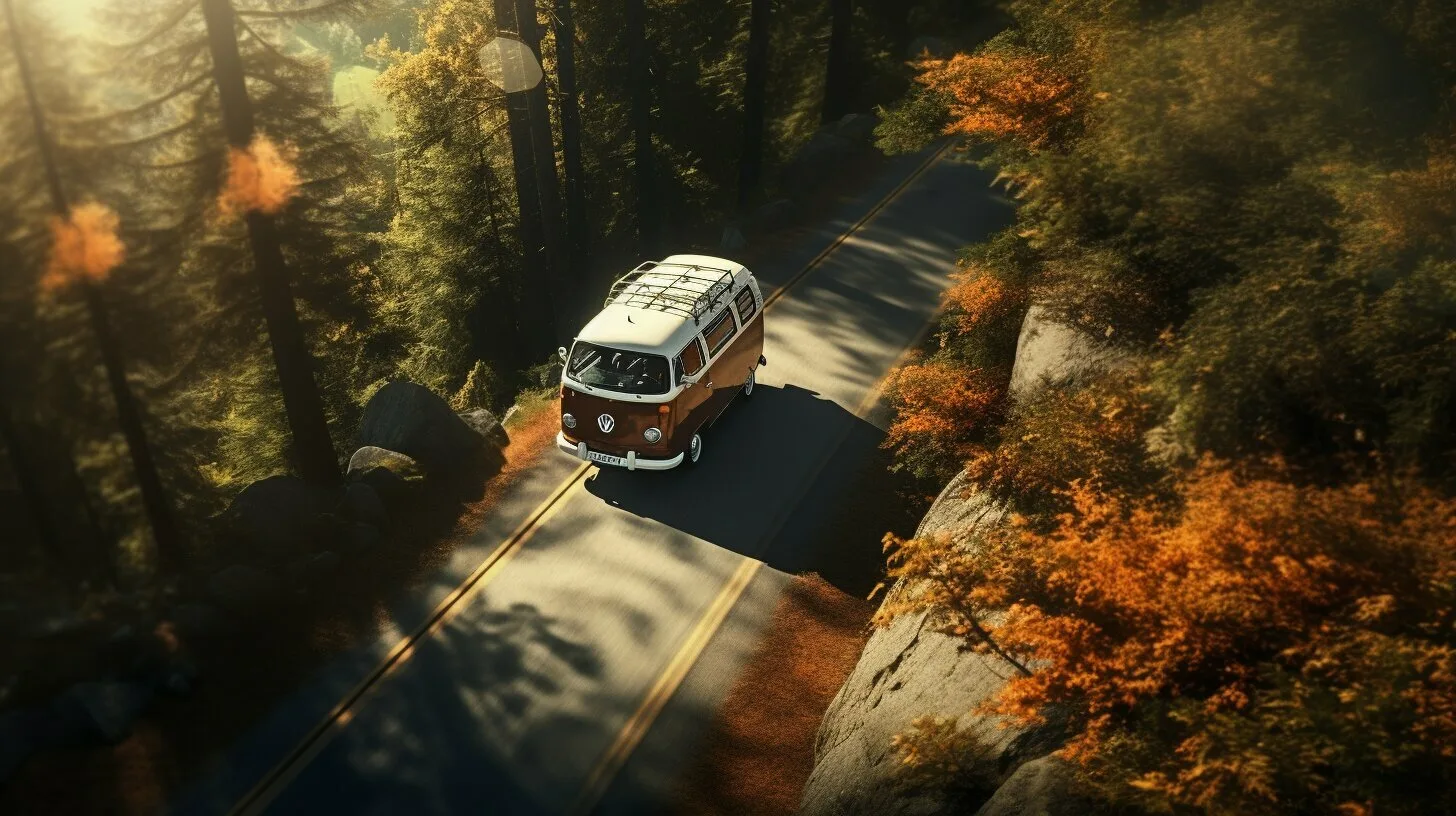Are you planning a road trip in your RV? Nothing ruins a trip faster than plumbing problems. Whether it’s a clogged toilet or a leaky faucet, plumbing issues can be a major headache. But with a little bit of maintenance, you can avoid these problems altogether.
In this article, I’ll share some top tips for maintaining your RV plumbing system. From regular inspections to proper cleaning techniques, these tips will help you keep your plumbing system in top shape. So if you want to avoid any plumbing mishaps on your next road trip, keep reading!
By following these tips, you can ensure that your RV’s plumbing system is always in good condition. Not only will this save you time and money on repairs, but it will also give you peace of mind while you’re on the road. So let’s get started!
Basic Starting Steps
Maintaining your RV’s plumbing system is important to ensure that it functions properly and to prevent any damage or leaks. Here is a step-by-step guide to help you maintain your RV’s plumbing system:
- Turn off the water supply: Before you start any maintenance work, turn off the water supply to your RV. This will prevent any water from flowing through the pipes and causing damage.
- Cut the power to your hot water heater: Don’t forget to disconnect both the propane and electrical lines from the heater. Make sure to turn off both the electrical and gas connections for safety.
- Drain and flush the fresh water tank: Drain and flush the water tank to remove any dirt, debris, or sediment that may have accumulated in it. This will help to prevent clogging and ensure that the water flows freely. Then drain and flush the grey water tank to remove soap and food debris.
- Add Bleach to Fresh Water Tank: Mix a 1/4 cup of bleach per 16 gallons of water (estimate the total and then prepare a gallon of water to pre-mix it in). Connect the plumbing lines back up and fill the fresh water tank up to capacity, adding in the bleach solution.
- Slosh the bleach water around: You will want the sanitizing agent to get into all corners. You can drive your RV around a bit to accomplish this. Let the water stand for around 8 hours.
- Run the water through the plumbing system: All the water can now be pumped through the faucets and lines, and then drain into the gray tank. Let the sanitizing water do its work in the gray water tank before draining.
- Rinse and Fill: Remember to run fresh water through the system to get rid of all of the bleach solution remaining in the pipes.
- Check the water pump: Check the water pump to ensure that it’s working properly. You can do this by turning on the water pump and checking the water pressure. If the pressure is low, the water pump may need to be replaced.
- Inspect the water hoses: Inspect the water hoses for any signs of wear and tear, such as cracks, leaks, or holes. Replace any damaged hoses to prevent leaks.
- Check the faucets and showerheads: Check the faucets and showerheads for any signs of leaks or damage. Replace any damaged parts to prevent leaks.
- Clean the drains: Clean the drains to remove any buildup of hair, soap, or other debris. This will help to prevent clogging and ensure that the water flows freely.
- Flush out the sewer hose and black tank: Regularly flush out your sewer hose and black tank. This will help to ensure that no blockages occur and that any unpleasant odors are kept at bay. To do this, simply attach a flexible wand or garden hose with a spray nozzle to the end of your sewer hose and run clean water through it.
- Test the system: Turn on the water supply and test the system to ensure that everything is working properly. Check for any leaks, low water pressure, or other issues.
By following these steps on a regular basis, you can help to ensure that your RV’s plumbing system functions properly and avoid any costly repairs.
Importance Of Regular Inspections And Maintenance Checks
Regular inspections and proper maintenance checks can prevent a plumbing issue in your RV while on the road. It can be quite frustrating and inconvenient, especially when it could have been prevented.
That’s why it is essential to prioritize the upkeep of your RV’s plumbing system.
One of the benefits of DIY maintenance is that it can save you money in the long run. Simple tasks like checking for leaks, cleaning filters, and ensuring proper ventilation can help prevent costly repairs down the line.
Additionally, scheduling routine professional inspections may seem expensive at first but can ultimately save you from major issues that would require extensive repairs or even replacement.
By investing time and effort into maintaining your RV’s plumbing system regularly, you’re not just preventing potential problems – you’re also saving yourself some cash!
Using High-Quality Products For RV Plumbing Systems
When it comes to maintaining your RV’s plumbing system, using high-quality products is essential. Not only do these products provide greater durability and compatibility with your RV’s plumbing system, but they also offer a variety of benefits that can save you time and money in the long run.
Investing in high-quality RV plumbing products can help prevent leaks, clogs, and other issues that could potentially cause costly damage to your vehicle. The importance of durability and compatibility when choosing products for RV plumbing cannot be overstated – inferior materials or those that are not designed specifically for use in an RV can lead to serious problems down the line.
Here are three additional reasons why investing in high-quality RV plumbing products is well worth the cost:
- Improved performance: Using premium-grade hoses, fittings, valves, and other components will ensure consistent water flow throughout your RV’s plumbing system.
- Better safety: High-quality materials are less likely to fail unexpectedly, reducing the risk of accidents such as flooding or gas leaks.
- Longer lifespan: By choosing durable materials that are compatible with your specific make and model of RV, you’ll extend the life of your plumbing system while minimizing routine maintenance needs over time.
By taking the time to choose top-quality components for your RV’s plumbing system now, you’ll enjoy improved performance and longevity while avoiding costly repairs later on.
So whether you’re planning a cross-country road trip or just enjoying a weekend getaway at the campground, invest in high-quality RV plumbing products for peace of mind and hassle-free travels!
Understanding Dos And Don’ts Of RV Toilets And Black Water Tanks
Are you tired of dealing with unpleasant odors and clogged pipes in your RV’s toilet and black water tanks? If so, it’s time to brush up on the dos and don’ts of maintaining these crucial systems.
Firstly, proper disposal is key when it comes to keeping your RV’s plumbing functioning smoothly. Never dump anything other than human waste and toilet paper down the toilet, as this can lead to blockages that are difficult to remove. Instead, dispose of items such as baby wipes or feminine hygiene products in a separate trash receptacle.
Another important aspect of caring for your RV’s toilets and black water tanks is the use of chemical additives. While some people believe that adding chemicals to their tanks will eliminate unpleasant odors, using too much of these substances can actually be harmful to both your plumbing system and the environment.
Always read product labels carefully before purchasing any chemicals, and follow instructions closely when applying them to your tank.
By following these simple guidelines, you’ll be able to enjoy a clean, odor-free RV experience for years to come!
Dealing With Common RV Plumbing Issues
Even if you have taken all the necessary steps to maintain your RV’s plumbing system, issues can still arise. One of the most common problems is leaks. Fortunately, there are ways to prevent them from happening or worsening.
First and foremost, inspect your water lines regularly for any signs of wear or damage. If you notice a leak, address it immediately before it turns into a major issue. Another important factor in preventing leaks is proper water pressure. High water pressure can cause stress on your pipes and fittings, leading to leaks or bursts.
Consider investing in a water pressure regulator to keep your levels at a safe range between 40-60 psi. Additionally, be mindful of how much water you are using at once; too much demand on the system can also lead to high pressure and potential leaks. By taking these precautions, you can avoid costly repairs down the line.
In addition to leaks, other common plumbing issues in an RV include clogs and odors. To prevent clogs, be careful about what goes down your kitchen sinks and toilets – avoid putting anything that could potentially block the pipes such as grease or feminine products.
For odors coming from your bathroom sink or shower drain, try pouring baking soda and vinegar down the drain followed by boiling water to help break up any buildup causing the smell. With regular maintenance and attention paid to these common issues, your RV’s plumbing system should continue running smoothly for years to come without breaking the bank.
Seeking Professional Help When Needed
Dealing with common RV plumbing issues can be a daunting task, but if you follow the previous section’s tips, your system should function smoothly. However, there may come a time when seeking professional help is necessary.
RV plumbing system repairs are necessary for maintaining the proper functioning and efficiency of recreational vehicles. These repairs involve fixing any issues or damages to the plumbing system, including pipes, valves, faucets, toilets, and tanks. Professional technicians proficient must inspect and diagnose the problems in the system, such as leaks, clogs, or broken components. They skillfully repair or replace damaged parts, ensuring that the plumbing system operates optimally. Regular maintenance and repairs of the RV plumbing system in English are crucial for a comfortable and hassle-free travel experience.How to Make Money While TRAVELING in an RV: A Comprehensive GuideHow to Make Money While TRAVELING in an RV: A Comprehensive Guide
The benefits of hiring a professional plumber or technician for your RV plumbing needs are numerous. First and foremost, they have extensive knowledge and experience working on these systems, which means they can quickly identify and fix any problems that arise. Additionally, by having someone else take care of the repairs, you won’t risk making costly mistakes that could further damage your system. Although it might seem like an additional expense at first, investing in professional assistance will ultimately save you money in the long run while ensuring your pipes stay healthy.
On the other hand, there are also risks involved in attempting to repair your RV plumbing without proper training or expertise. For one thing, if you make a mistake during the process, it could lead to significant water damage inside your vehicle. Moreover, failing to address even minor leaks promptly could result in mold growth or structural damage over time.
Ultimately, it’s crucial to weigh the pros and cons carefully before deciding whether to tackle repairs yourself or hire a professional for peace of mind.
Frequently Asked Questions
How Often Should I Replace The Plumbing System In My RV?
While there is no set timeframe for when a plumbing system needs to be replaced, keeping up with regular maintenance can help extend its lifespan.
Additionally, if you notice any leaks or other issues with your RV’s plumbing system, it may be time to replace certain components or even the entire system.
Ultimately, staying vigilant about maintaining your RV’s plumbing system can help prevent costly repairs down the line.
Can I Use Regular Household Cleaning Products To Clean My RV’s Plumbing System?
Yes, you can use regular household cleaning products to clean your RV’s plumbing system.
However, it’s important to be cautious when using chemicals as they may damage the pipes and cause leaks.
It’s recommended to use non-toxic and eco-friendly cleaners instead.
Additionally, during the winterizing process, it’s crucial to properly flush out any remaining water in the plumbing system to prevent freezing and potential damage.
Regular maintenance and care of your RV’s plumbing system will ensure its longevity and functionality for years to come.
What Should I Do If I Notice A Foul Smell Coming From My RV’s Plumbing System?
If you notice a foul smell coming from your RV’s plumbing system, it could be due to common causes such as clogs or leaks.
To prevent this issue, make sure to regularly clean and maintain your RV’s plumbing system.
You can also use odor-neutralizing products specifically designed for RVs.
Additionally, avoid dumping food waste or other non-biodegradable items down the drain.
By taking these preventative measures, you can keep your RV’s plumbing system running smoothly and eliminate any unpleasant odors.
Can I Use My RV’s Toilet While Driving Down The Road?
Yes, you can use your RV’s toilet while driving down the road, but it’s important to follow proper RV toilet safety tips.
First and foremost, make sure all passengers are seated and belted in before using the restroom while on the move.
Additionally, avoid flushing any solids or paper products that could potentially clog up your plumbing system.
It’s also a good idea to empty your holding tank before hitting the road to prevent any unwanted odors or leaks.
Overall, with these tips for driving with an RV toilet in mind, you can safely use your onboard restroom while traveling from one destination to another.
Is It Safe To Drink Water From My RV’s Freshwater Tank?
Drinking water from your RV’s fresh water tank can be a bit of a gamble. It’s like playing Russian Roulette with your health, especially if you haven’t properly maintained your RV water filtration system.
Before taking that first sip, make sure to use water testing kits to check for any harmful bacteria or chemicals lurking in the tank. Don’t rely on just taste or smell as indicators of clean water – they can often be deceiving.
So, play it safe and keep those water filters up-to-date!
Conclusion
In conclusion, maintaining your RV’s plumbing system is essential for a smooth and enjoyable journey. Regular cleaning and inspection will save you from unexpected breakdowns and costly repairs. Remember to use specialized products when it comes to cleaning the tanks or pipes, as household cleaners can damage them.
However, don’t forget that a camping trip is all about adventure and exploring new places. So while taking care of your plumbing system is important, don’t let it dominate your experience.
Embrace the freedom of hitting the road with your home on wheels, but always keep in mind these top tips to ensure a comfortable and worry-free ride.





